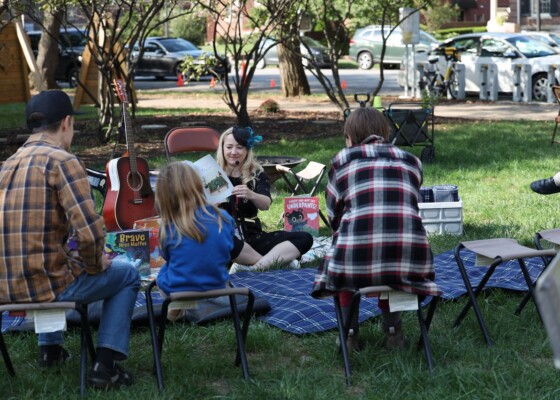Hunger at the Border
September 21, 2010Each time I visit Juarez, I eat great food. I’ve gotten to spend time over the last two years with a women’s center and cooperative in one of the poorest…
Each time I visit Juarez, I eat great food. I’ve gotten to spend time over the last two years with a women’s center and cooperative in one of the poorest neighborhoods in the city. Whenever I’m there, the women of the co-op gather and prepare me a feast—calabacitas, fresh tortillas, chicken simmered with chiles.
I used to think this was how my friends in Juarez ate all the time. I was wrong. “Those feasts are just when you come,” Sister Donna, one of the Dominican nuns from the U.S. who helped found the cooperative, told me over the phone one day. “The women are hungry.” As violence escalates in Juarez, so does hunger, in its many forms. “We’ve started to distribute food to the women to take home,” Donna added, “something we’ve never had to do before.”
The first time I visited Juarez, I stayed at the home of Aurelia, a member of the co-op. I was lucky to be staying at Aurelia’s house, other women from the co-op told me: she had running water. She was also a great cook.
Heat and unrest lay oppressively over everything in Juarez. Several murders occurred the first night I spent in the city. I slept in a shed atop Aurelia’s two-room, cinder-block home. In an attempt to cool off at night, I soaked my pajamas in the murky water that spilled from an exposed pipe in the courtyard. But even still, lying in the airless oven of a room, I was too hot to sleep.
I left my bed and walked out onto the roof, looking over the dimly lit streets of Juarez toward the glare of lights from El Paso in the distance. Hungry dogs moaned all over the neighborhood. I heard the Aurelia’s small dog whining in the courtyard below. I climbed down the ladder to bring her up to the roof. She was covered with ticks, fleas, and dusty, scabbed lesions. I remembered a smashed peanut butter sandwich in the bottom of my backpack. I tore off pieces of it. She licked peanut butter from my fingers between bites. As I fed her, a stray cat appeared on the roof and watched the meal in progress, licking her lips. I held out a piece of sandwich to her, and she came to join us.
Hours or moments later, when I finally retreated to my hot bed, the dog whined outside my window for a long while, hungry for more. When I awoke a few hours later at dawn, the cat was waiting outside the door, still hopeful.
My last morning at Aurelia’s house before returning home, I stood in the courtyard hugging her goodbye, thanking her for sharing her home and her meals with me. The dog—whose ribs jutted out through her matted, tick-coated fur—approached quietly and laid her bone at my feet.
This post was written by Kelsea Habecker. When she’s not living elsewhere, Kelsea Habecker lives, writes, and teaches in Indianapolis. Her book, Hollow Out, was published by New Rivers Press.


